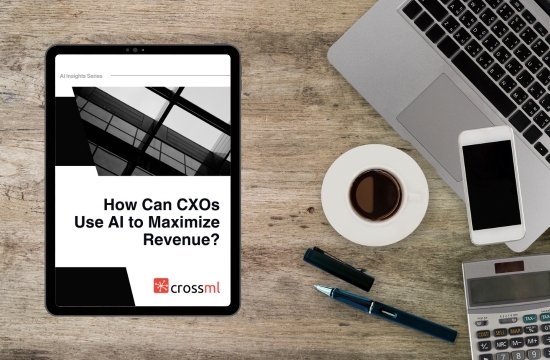Introduction
Artificial Intelligence (AI) in pharma is quickly becoming a game-changer, especially in how pharmaceutical companies manage regulatory submissions. With rising data volumes, tighter compliance requirements, and the growing pressure to speed up drug approvals, AI in the pharmaceutical industry is proving to be a powerful tool.
It helps automate time-consuming tasks, reduce human errors, and ensure that regulatory standards are met faster and more accurately.
As per a report by Precedence Research, the global market for AI in pharma is estimated to grow to USD 16.49 billion by the year 2034, expanding at a CAGR of 27%. This growth highlights how artificial intelligence in pharma is not just a trend but a necessity for future-ready pharmaceutical operations.
In this blog, we will explore how AI in pharma is improving regulatory submissions, reducing risks through smarter pharmaceutical risk analysis, and supporting faster drug development automation.
We will also look at how AI regulatory intelligence is transforming compliance and how predictive analytics in pharma is helping companies stay ahead. Most importantly, we will share how CrossML is contributing to the pharma industry by building intelligent regulatory solutions that make risk mitigation in pharma more efficient and effective than ever before.
The Role of AI in Regulatory Submissions
Artificial Intelligence (AI) is revolutionizing the pharmaceutical industry, particularly in the area of regulatory submissions. By automating data collection, enhancing predictive analytics, improving document management, ensuring compliance, and providing real-world applications, AI is streamlining processes that were traditionally time-consuming and prone to human error.
- Automating Data Collection and Analysis
AI systems can quickly collect and analyze extensive datasets from clinical trials, real-world evidence, and preclinical studies.
For example, Pfizer collaborated with IBM Watson to improve immuno-oncology research by using Watson’s cognitive computing capabilities to analyze vast amounts of data, thereby accelerating the identification of potential drug candidates.
This automation reduces manual workload and minimizes errors, leading to more efficient drug development processes.
- Enhancing Predictive Analytics
By utilizing historical data and machine learning models, AI can forecast regulatory outcomes, enabling companies to anticipate and address potential issues proactively.
Roche, for instance, employs AI and machine learning to redefine the drug discovery process, aiming to bring medicines to patients more efficiently.
This approach has the potential to reduce approval timelines and improve the success rate of regulatory submissions.
- Improving Document Management
AI-driven Natural Language Processing (NLP) tools can extract insights from unstructured clinical notes and trial reports, ensuring that submissions are accurate and comprehensive.
Genpact has introduced AI solutions to automate drug safety processes, which can significantly reduce the time required for document review and improve overall efficiency.
Such intelligent regulatory solutions facilitate better organization and retrieval of critical information during the submission process.
- Ensuring Compliance with Regulatory Standards
AI tools continuously monitor updates from regulatory bodies like the FDA and EMA, helping pharmaceutical companies stay compliant with evolving standards.
According to Deloitte, integrating AI into the biopharma supply chain can improve value and manage risks more effectively, highlighting AI’s role as a strategic enabler for ensuring submission compliance and traceability.
As a result of this proactive approach towards regulatory risk management, organizations are able to minimize the likelihood of non-compliance and associated penalties.
Download the handbook
How CXOs Can Use AI to Maximize Revenue?
By clicking the “Continue” button, you are agreeing to the CrossML Terms of Use and Privacy Policy.

Benefits of AI in Risk Assessments
Artificial Intelligence (AI) is revolutionizing risk assessments in the pharmaceutical industry, offering significant improvements in efficiency, accuracy, cost reduction, proactive management, and regulatory compliance.
By integrating AI into regulatory submissions and drug development automation, companies can enhance their pharmaceutical risk analysis and implement intelligent regulatory solutions.
- Boosting Efficiency in Risk Assessments
AI in pharma streamlines data checks, accelerates risk modeling, and automates document preparation.
According to McKinsey, AI has the potential to generate $60 billion to $110 billion annually across the pharmaceutical value chain, highlighting its role in enhancing operational efficiency.
- Enhancing Accuracy in Risk Analysis
Artificial intelligence in pharmacy minimizes subjective interpretations, leading to more reliable risk assessments. AI-based pharmacovigilance tools have demonstrated improved accuracy in identifying safety signals, thereby enhancing patient safety and reducing the likelihood of adverse events.
- Reducing Costs through Automation
Implementing AI in regulatory workflows can lead to substantial cost savings.
For instance, 40% of pharma executives are incorporating expected savings from generative AI into their budgets, indicating a strategic move towards cost-effective operations.
- Proactive Risk Management with Predictive Analytics
Predictive analytics in pharma enables early detection of potential regulatory issues.
Companies like AstraZeneca are advancing data and AI ethics to ensure responsible use of AI, which includes proactively identifying data inconsistencies and mitigating risks before they escalate.
- Improving Regulatory Compliance
AI for regulatory affairs improves compliance by automating data cross-checking and ensuring consistent data formatting. Natural Language Processing (NLP) text analytics help organizations to reduce costs as well as speed compliance across regulatory changes, labeling, as well as master data management.
How CrossML Is Transforming Regulatory Compliance with Smart AI in Pharma?
At CrossML, our mission is to simplify complex regulatory processes in the pharmaceutical industry using the power of AI in pharma. We help companies speed up drug approvals, reduce compliance risks, and manage data more efficiently. Our AI solutions are secure, scalable, and designed to support regulatory teams with automation, insights, and better decision-making.
Staying Up-to-Date with Global Compliance – Automatically
Regulatory bodies like the FDA, EMA, and MHRA frequently update rules, making it hard to keep submissions compliant. CrossML’s AI regulatory intelligence tools continuously track these updates and alert your teams in real time. You no longer have to manually monitor multiple sources. This automation ensures your submissions stay aligned with the latest compliance protocols – reducing audit risks and penalties.
Making Documentation Faster, Smarter, and Error-Free
Writing and reviewing regulatory documents can take weeks. With our intelligent regulatory solutions, we use Natural Language Processing (NLP) and Optical Character Recognition (OCR) to automate the preparation and validation of these documents. This reduces human error and shortens document processing time by over 60%.
Predicting Risks Early with Custom AI Models
Every company faces different risks in their regulatory process. That is why we create custom machine learning models that understand your business needs. These models help identify gaps, flag risky data patterns, and support strong regulatory risk management.
No Need to Replace Existing Systems
CrossML’s AI tools are built in a way that seamlessly fit into your current ecosystem. Whether you are using clinical trial software, document management platforms, or pharmacovigilance systems, our tools integrate smoothly without the need to maintain your tech stack. This makes it easier for teams to adopt artificial intelligence in pharmacy without disrupting existing workflows.
Smarter Decision-Making with Real-Time Dashboards
Our platform includes live dashboards that give you instant access to risk scores, submission progress, and approval probabilities. These tools combine predictive analytics in pharma with visual summaries to help leaders make faster, data-backed decisions. With this, teams are no longer working in the dark – they have clarity and insight at every step.
Faster Prototyping Means Quicker Go-to-Market
Using AI simulations, CrossML allows pharma companies to test and validate their regulatory submissions before sending them. This speeds up drug development automation and helps you plan better submission strategies. In many cases, we have seen clients reduce prototyping time by up to 75%, which gets drugs to market faster and more efficiently.
Enterprise-Grade Data Security Comes Standard
We understand how critical data security is in the pharmaceutical industry. That is why our platforms come with end-to-end encryption, role-based access, and compliance with HIPAA, and GDPR standards. Whether you are handling AI in clinical trials or sensitive submission documents, your data stays protected at all times.
Conclusion
Artificial intelligence in pharmacy is no longer just a trend but it is completely changing how pharma companies handle regulatory submissions. In a space where accuracy and timelines are everything, AI in pharma offers a smarter, faster, and more reliable path to success. It helps eliminate human errors, improve document tracking, and ensure full Pharma compliance across all stages.
Using AI for regulatory affairs, companies can speed up document review by up to 70% and reduce compliance risks with intelligent alerts and real-time updates from global health authorities. Tools powered by predictive analytics in pharma also flag potential risks early, helping with better regulatory risk management and decision-making.
At CrossML, we deliver intelligent regulatory solutions that automate documentation, ensure traceability, and support drug development automation. Our AI systems are built to manage AI in clinical trials, predict approval success, and reduce bottlenecks while saving time and resources.
FAQs
AI is making pharma faster and smarter by automating research, improving clinical trials, and reducing errors. It helps companies bring new medicines to market quicker, stay compliant, and cut development costs.
AI speeds up research by analyzing large medical datasets quickly. It helps find patterns, test drug combinations, and predict success rates—making drug development more accurate, less costly, and less time-consuming.
Yes, AI can discover new drugs faster by predicting how molecules will behave. It helps scientists focus only on the most promising options, reducing years of manual testing and increasing the chance of success.
AI improves patient care by personalizing treatments, tracking side effects, and predicting health outcomes. It supports doctors in making better decisions and ensures patients receive the most effective and safe medications.
Risks include data privacy issues, biased algorithms, and over-reliance on automation. If not monitored properly, AI can make incorrect predictions, leading to delays or safety concerns in drug development.

